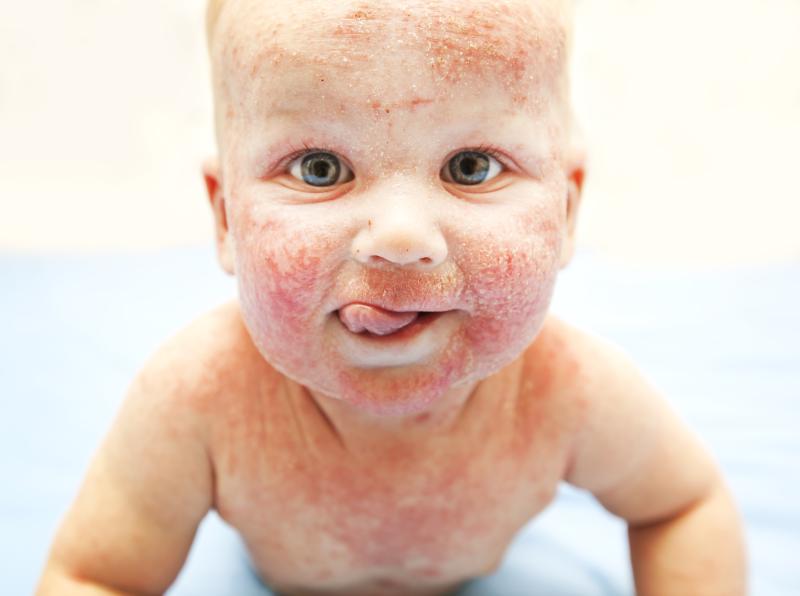
Atopic dermatitis (AD) appears to be a significant mental health burden among children, a new study has found.
Researchers performed a cross-sectional analysis on 57,726,856 children, drawing data from the 2013–2017 US National Health Interview Survey. Child mental health was assessed through caregiver responses to the Strengths and Difficulties Questionnaire (SDQ), as well as through utilization of mental health services. The exposure variable was AD.
Of the study sample, 11.8 percent (n=6,807,687) had AD in the last 12 months. More than a quarter of these children (26.7 percent) had mental disorders with impairment (MDI), as opposed to only 17.7 percent of children without AD. The resulting difference was significant (p<0.001).
Moreover, severe MDI was almost twice as prevalent in AD vs non-AD children (10.9 percent vs 6.2 percent; p<0.001).
In addition, kids with recent AD were significantly more likely to have seen a mental health professional in the previous year (13.3 percent vs 8.3 percent; p<0.001). In this group, 19.9 percent with mild MDI and 53.5 percent with severe MDI had seen a professional.
Multivariable regression models, adjusted for demographic covariates and comorbidities, found that AD was significantly associated with MDI (adjusted odds ratio, 1.28, 95 percent confidence interval, 1.14–1.44).
“Importantly, our findings that many children with impaired mental health may not seek or receive medical attention for their symptoms exposes a critical practice gap,” the researchers said.
“Further work is needed to understand the potential barriers to mental health care in the paediatric AD population and to determine if successful treatment of AD results in better mental health outcomes,” they added.